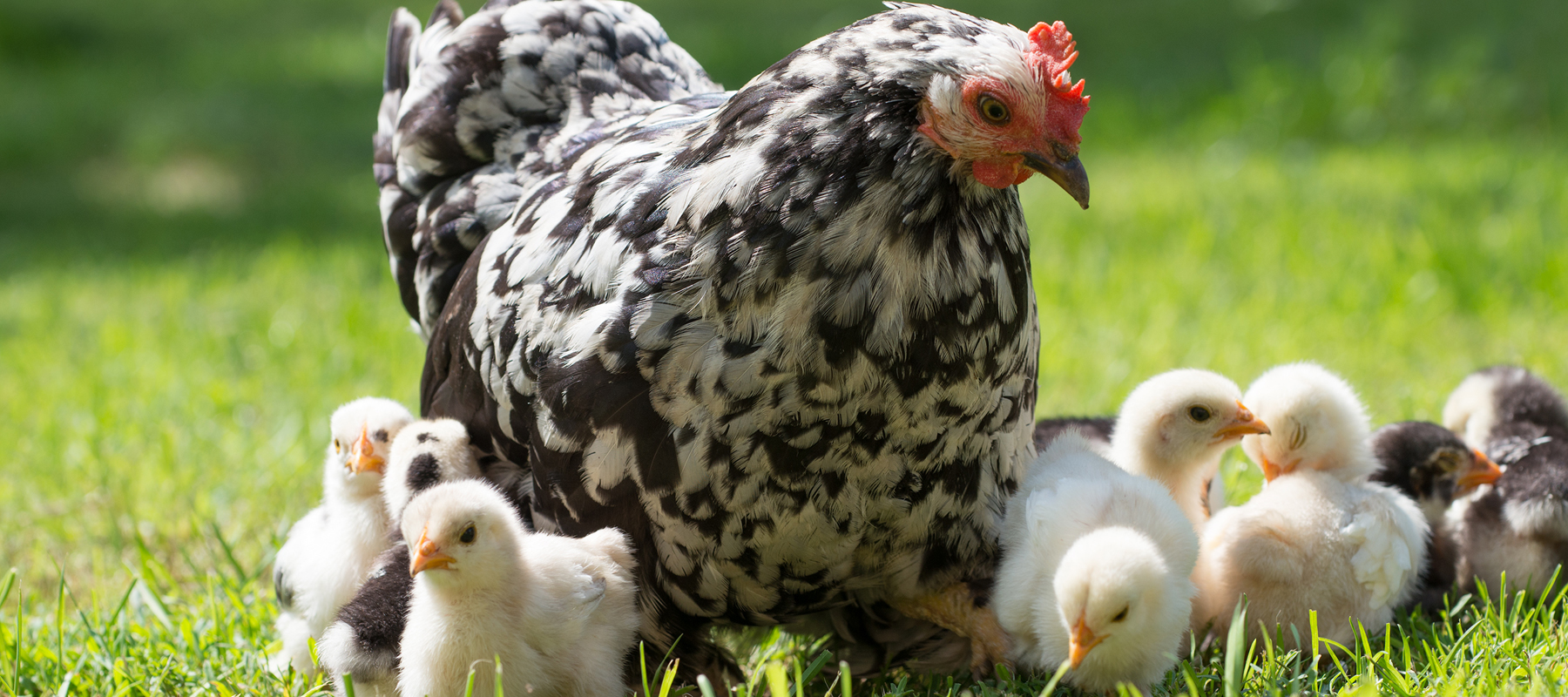
Feather Tips - Just What you Need To Know
So now you’re keen to get started with your hen keeping but you still have questions to ask….. there are answers to the most common questions below, and you also get a free, comprehensive hen keeping guide when you purchase your hen house.
If there are still questions you can’t find the answers to please contact us and we’ll be happy to help. The main thing to remember is that hen keeping is childs play…. you don’t need to take our word for it – check out Callum happily looking after his hens
Do I need a cockerel for my hens to lay eggs?
NO. They are happy to lay as soon as they get past the teenager stage and become young female hens – pullets. Unless you are intending to breed from the hens you don’t want a cockerel as they will be cockadoodledooing from early in the morning. This is ok if you have your henhouse at the bottom of a field and away from neighbours, but otherwise best avoided.
If you do have a cockerel the eggs are just the same, but as they’re fertile you have the option to put them in an incubator or let a broody hen sit on them to hatch some chicks.
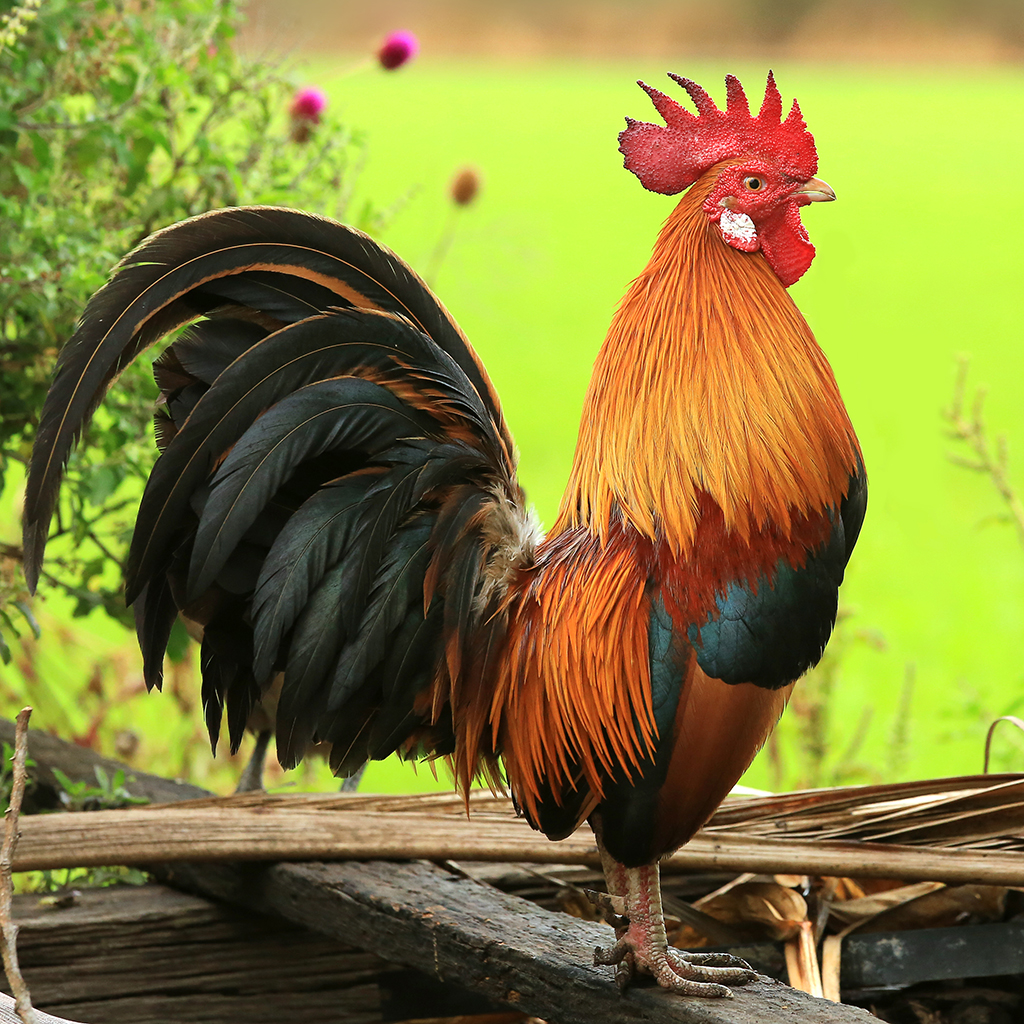
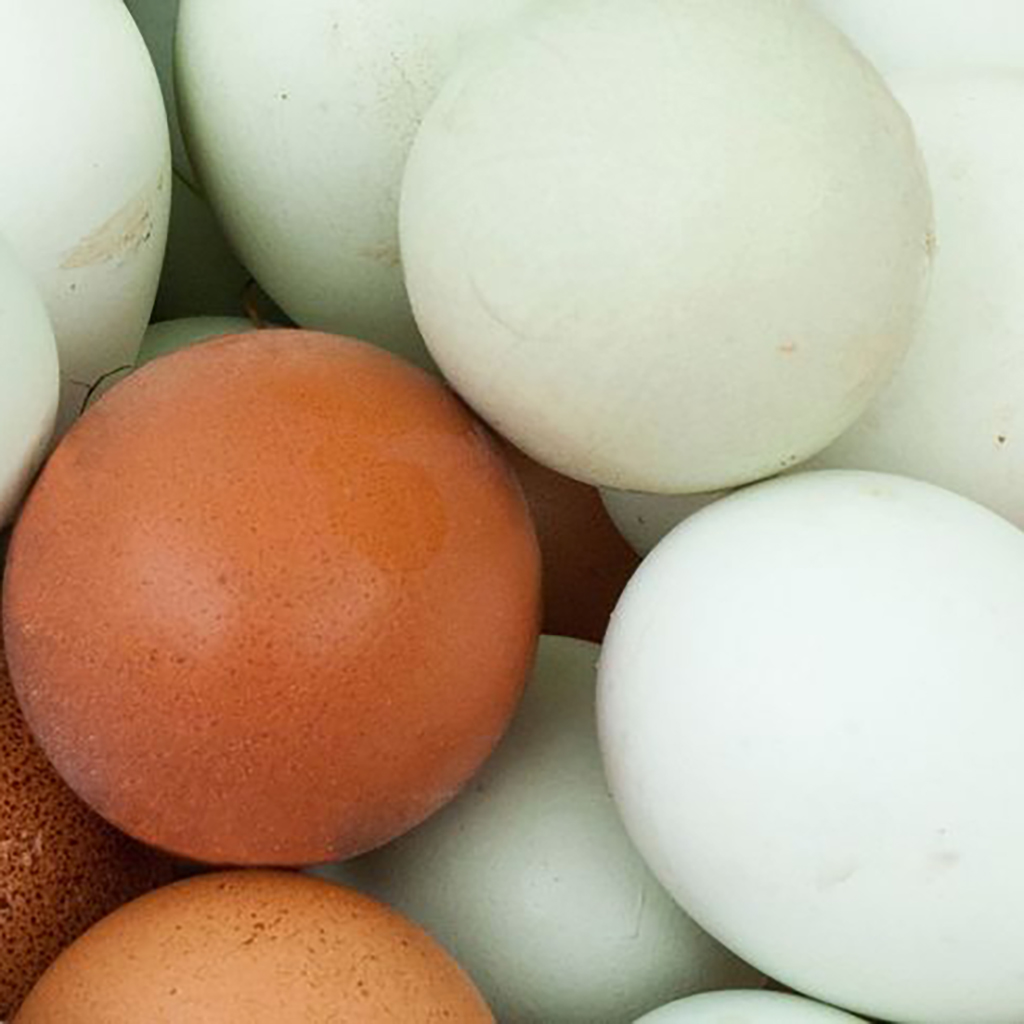
Are brown eggs any different to white, pink or blue shelled ones?
No, they are all the same inside. The colour of the yolk just depends on the feed and if they are getting their greens. All commercial layers pellets will have grass based or other natural extras to ensure good colour yolk as well as the 16% protein the hen needs to keep up their egg production.
Can I feed my hens table scraps?
Yes, but do make sure they have had a good feed of layers pellets first. It’s like making sure the children eat their main meal before you offer them pudding! Wheat is best kept for an afternoon scratch around treat (and helps to entice them back into their house early or when trying taming them).
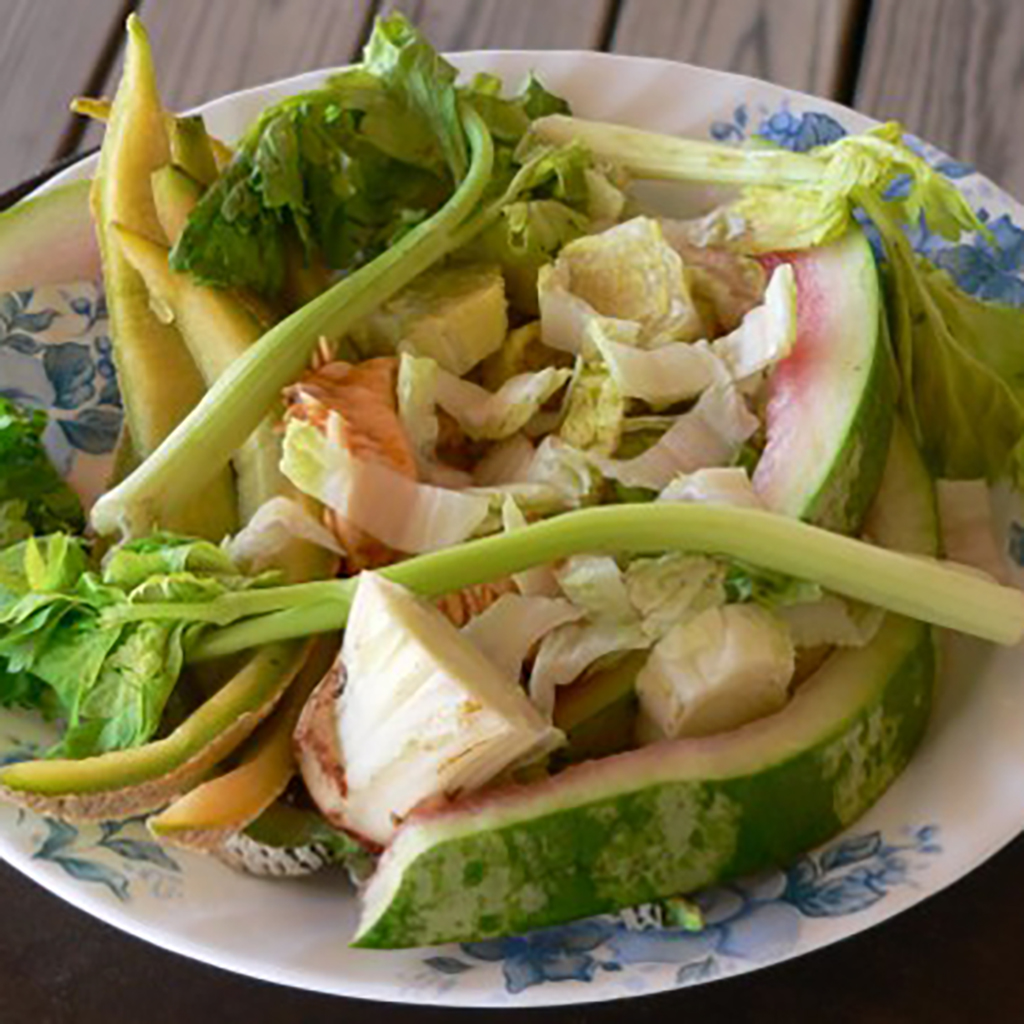
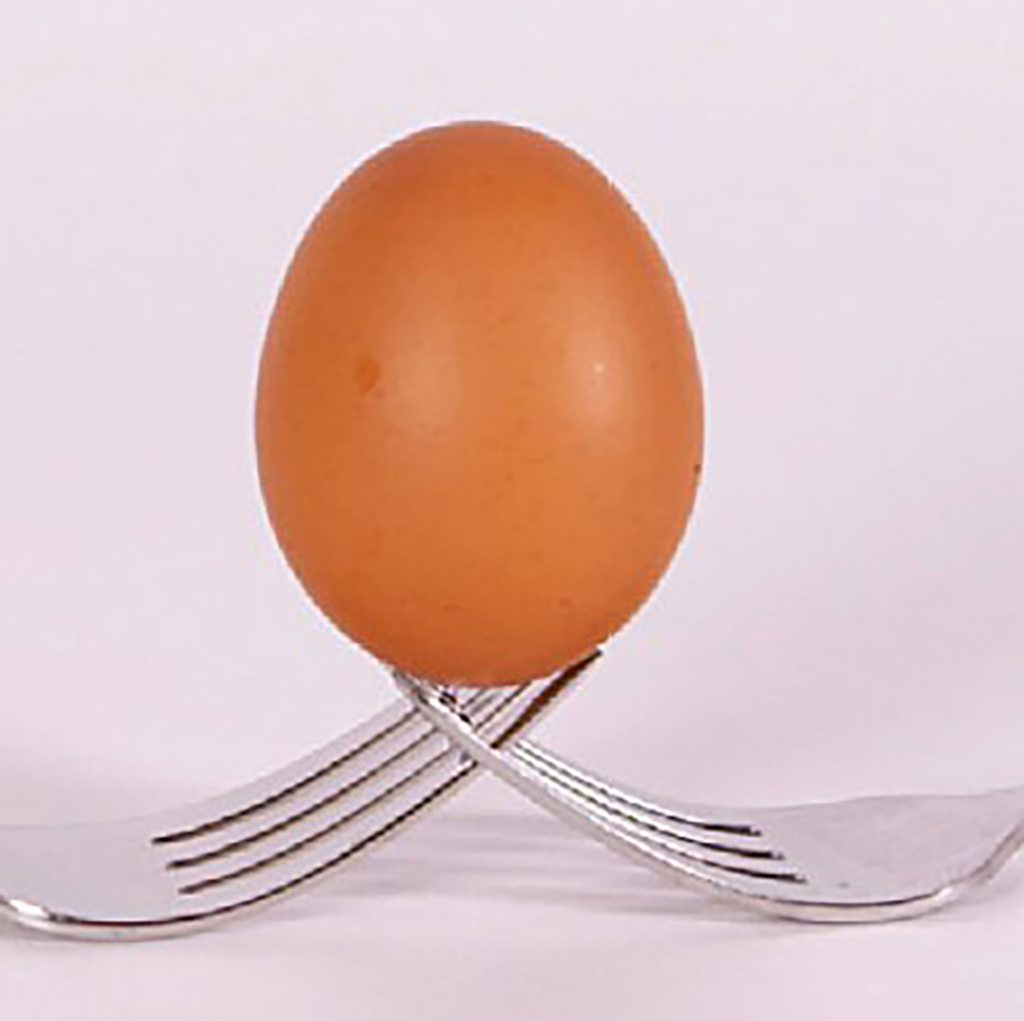
How many eggs will a hen lay in a day?
Just the one!
Generally your hen will lay a single egg a day, but there are occasions when they may be put off the lay – sudden frights, worms and other health issues may affect their egg production… even the hybrid laying machines can be unpredicatable at times. When Mother Nature is involved there are never any guarantees!!
Also remember that hens living under natural conditions (without additional artificial light) will go into a moult during the longest dark night and then feather up well again for early spring! Although sometimes they lay through – unpredictable.
The eggs are quite small, will they always be like that?
Eggs may start off small from your young pullet but will soon settle to a larger size. Don’t panic over the occasional softshelled egg or a funny shaped one. Hens are not totally regimented in what they turn out and, particularly when young, they take time to settle to regular eggs every time.
Remember you’re not grading them for supermarket sales and EU regulations! You might even get some double yolkers, a bonus!
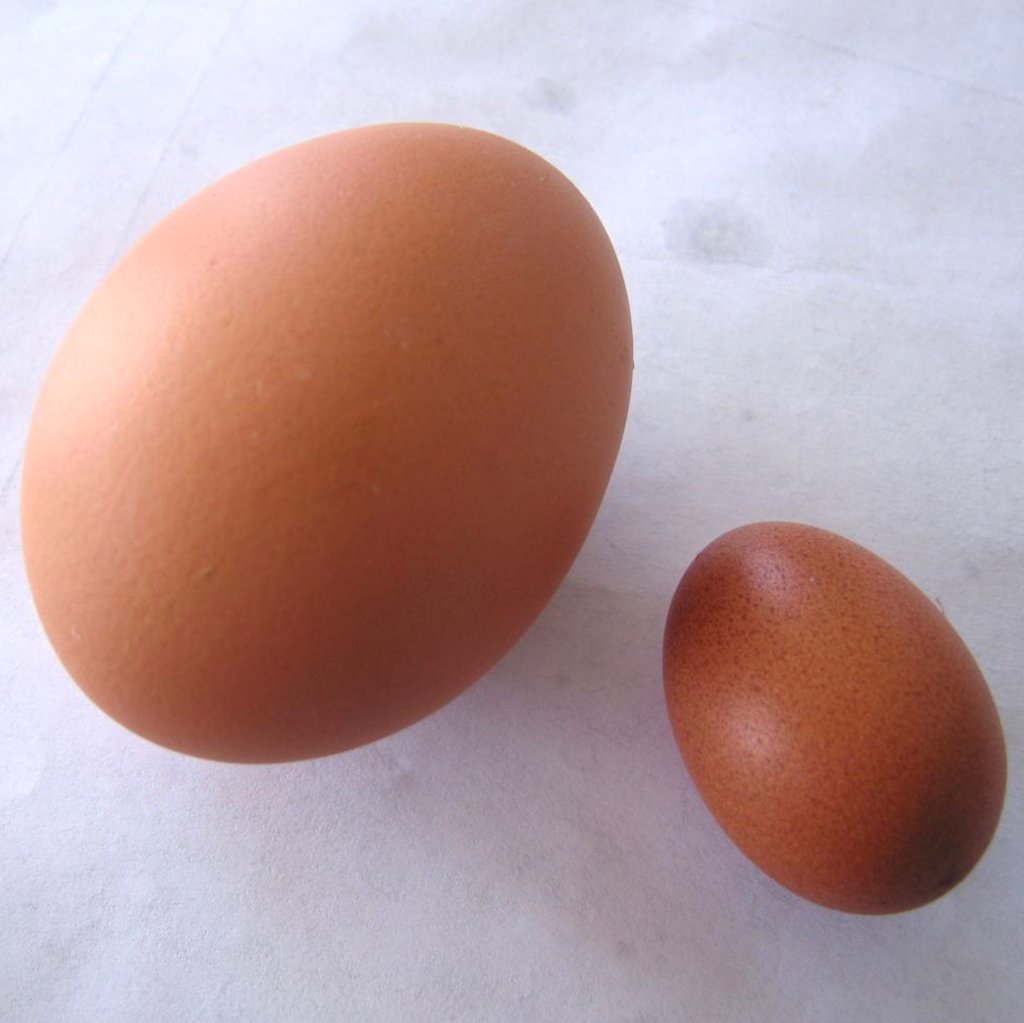
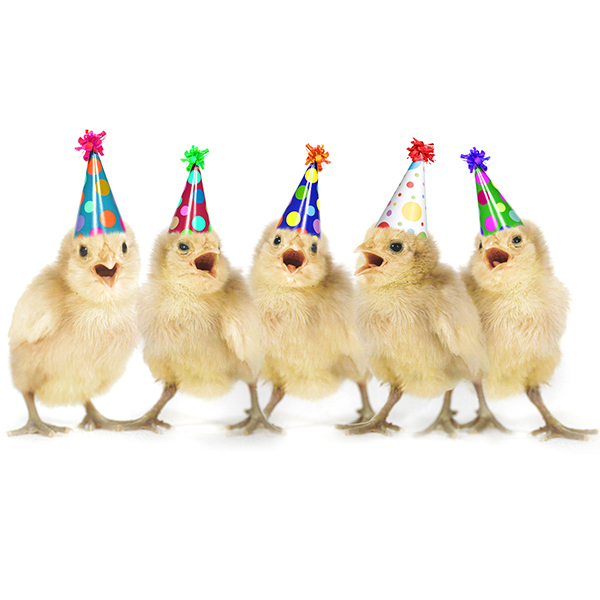
How long will my hens live?
It depends…. at least with our Green Frog and Eglu housing Mr. Fox shouldn’t be cutting their lives short!
Hens, like any pet, do sometimes get ill and have accidents etc. but all being well they live for around 5 years but egg productivity does fall as they get older.
Is there anything I can do to help keep my hens healthy?
Just general cleanliness for housing and water etc, along with quality layers pellets for good nutrition.
You can also buy items from our Health Box such as Verm-X pellets to add to their feed 3 days each month (to keep worms to a minimum and generally boost their gut health)- a single packet does 6 hens for 6 months.
Putting Diatom anti-parasite powder (natural and fossil based) in their nest and around nooks and crannies really does work to keep lice and mites at bay, and the petSafe disinfectant is useful to spray along with your monthly deep clean of the hen house.
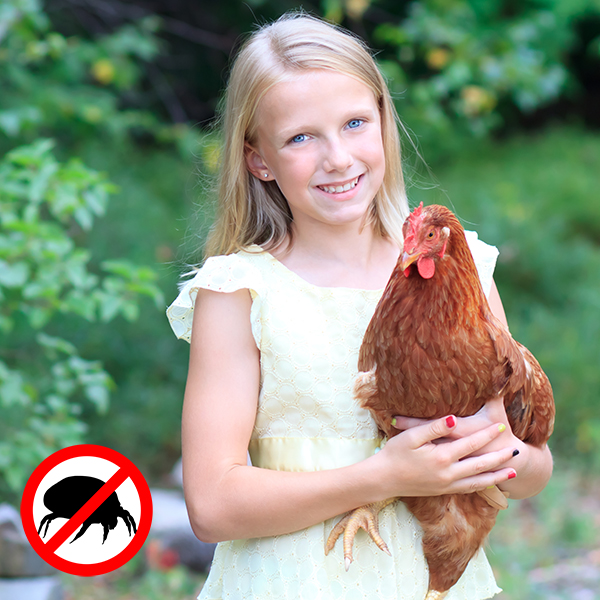
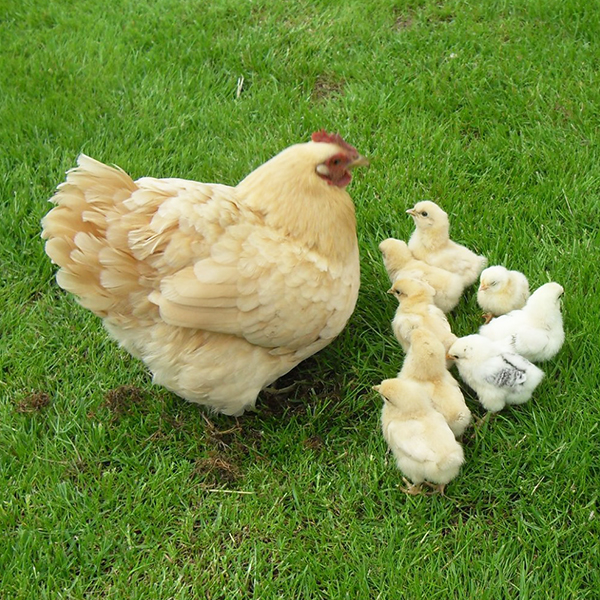
How do I know if my hen has gone broody?
She will refuse to get off the nest, fluffing herself up and “clocking” the distinctive sound of a determined broody.
If you’re happy to have her hatch chicks, put her aside in a separate shed or pen where she can be cosy and not disturbed along with food and water. Give her a clutch of fertile eggs (from hens that have been with a cockerel!), 6 to 10 eggs depending on her size, and monitor her for 21 days. Ideally “candle” the eggs at around 10 days to see which eggs are developing allowing you to discard any undeveloped eggs.
Remember we’re happy to help you through these stages and supply the fertile eggs.
Will the cat eat our hens?
No, the hens will see off any cat quite easily, however your dog might fancy a tasty chicken dinner so ensure the hens are in their run when the dog is around. You can gradually introduce them under your supervision – but it really does depend on the dog
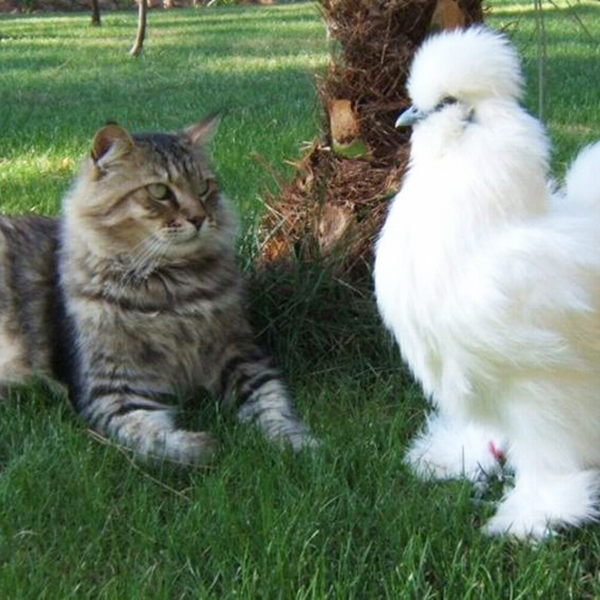
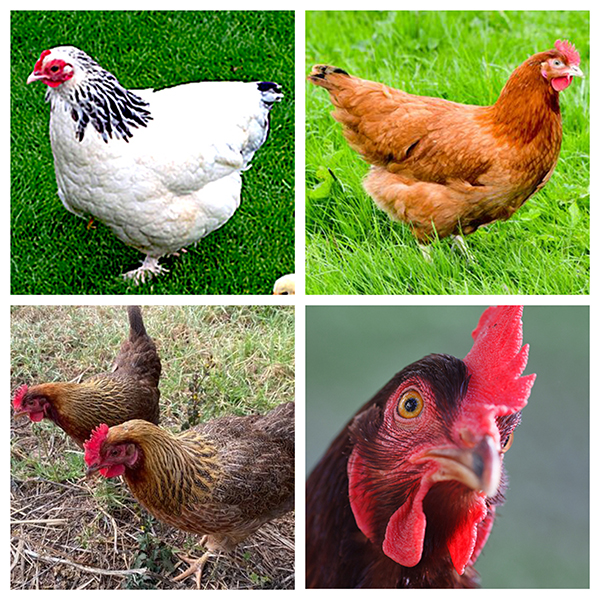
Which is better – a hybrid or a purebreed?
If it’s eggs you want or if you’re just starting out in henkeeping, then go for the hybrids as they have been vaccinated, are generally more reliable and are good with children.
Some of the traditional breeds are also hardy, sturdy birds and not far behind the hybrids in laying, so these may also be just as suitable for you as the hybrids.
We’re happy to discuss your particular situation and you can come and visit us at South Dron Cottage, our small holding to see some of the breeds.
Can I tame my hen to make a real pet out of it?
You most certainly can…. providing you offer it the right treats, and are quiet and patient with the hen. You’ll soon have it feeding out of your hand and rushing over when it spots you!
We stock Dried Mealworms – the tastiest, fastest training treat ever. You’ll have your hens doing cartwheels of joy when you offer them this treat.
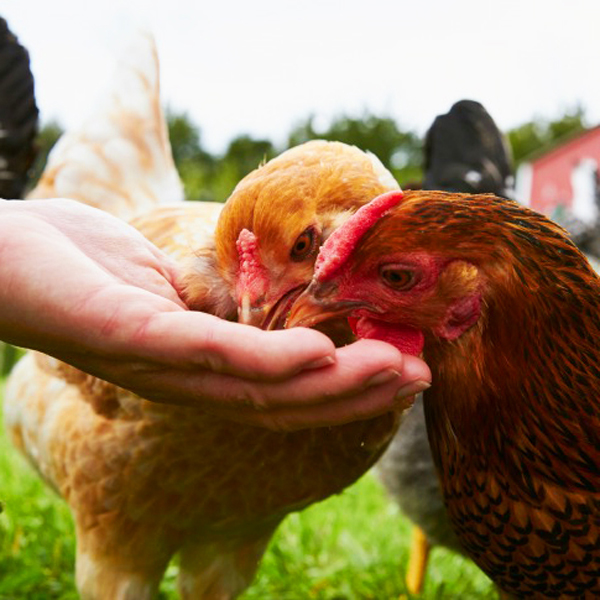
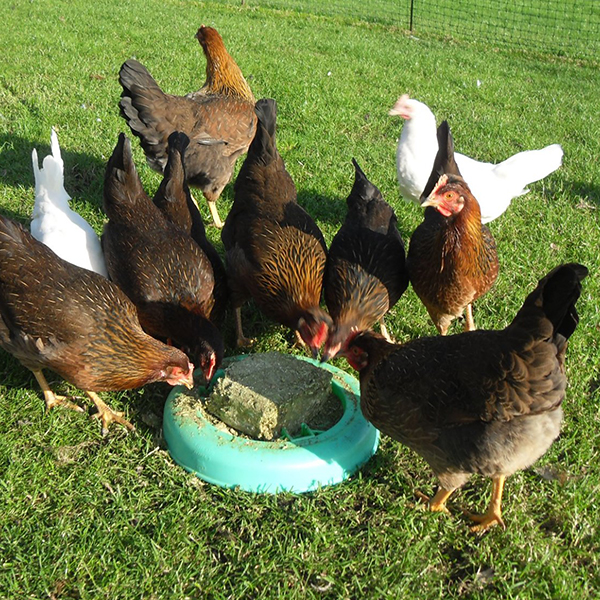
Is it easy to add more hens to my existing flock?
Not always – it can be tricky as the existing flock won’t take kindly to newcomers, and the pecking order squabbling does put your hens under stress. There are some anti-bullying tatics that can be deployed:
- Adding two or more hens is better than adding just one
- Adding newcomers in the night when resident hens are quiet on their perches so they all wake up together
- Spray all the hens with a small squirt of perfume so they wake up smelling the same*
- Use boredom breakers (yes that green thing they are pecking at in the photo!). We can supply these Hally’s Hen Blox for £5
*Designer brands are not required! And if it doesn’t stop the bullying at least your henhouse will smell nice
Will my hens fly away?
Not if you clip one wing to unbalance them – this is painless and we can show you how to do it or do it for you. If your hens have food, water, and everything they need close at hand they won’t go far.
If you want them to wander further you can buy special poultry netting which is easily moved around. We supply Omlet Poultry Fencing – easy move netting with poles and a clip gate.
Gardeners beware….. hens will scratch at plants and eat your veg plot if you don’t fence them in…. or out!
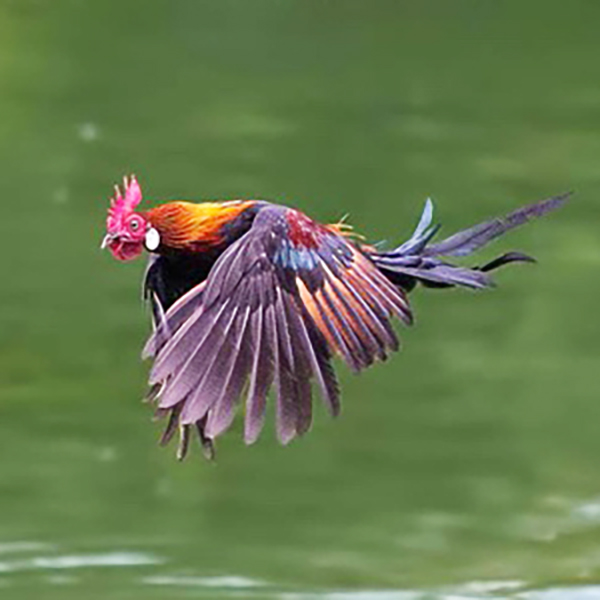
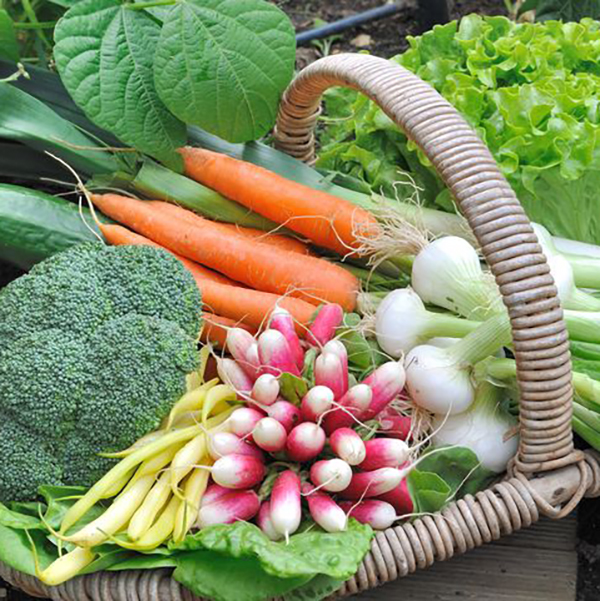
Can I put their droppings in my veg plot?
Most certainly, dig them in…. poultry manure grows great veg! The droppings are too strong to go straight onto the flower beds but will speed up your compost heap or bin beautifully. So not only will your hens give you eggs but are great for your garden too… truly productive pets!
